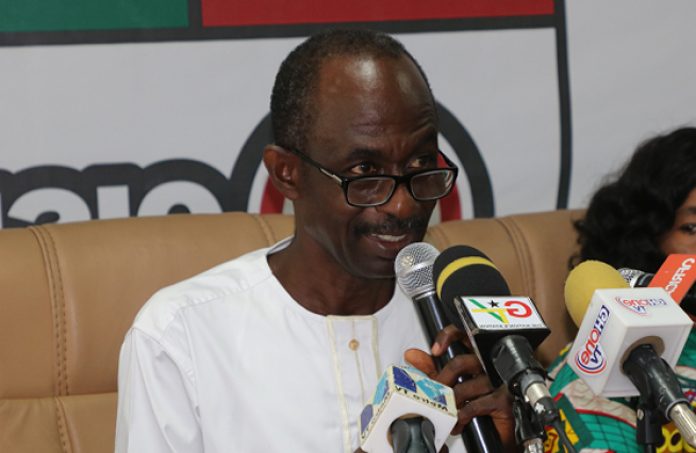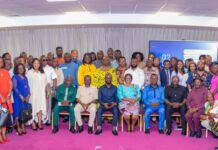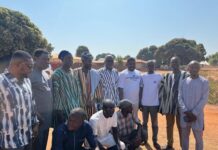According to him, the party informed the Chairman of the National Peace Council (NPC) about the “emergency” and called for a postponement of the meeting.
“We had an emergency so we called the Chairman of the National Peace Council to explain our inability to be there today [Thursday] and called for a postponement of the meeting. The emergency related to the fact that our chairman who is the leader of the delegation had to make a court appearance today and we did not see how we can be at Aburi and the court at the same time,” he said in a radio interview on Accra-based Citi FM, monitored by Graphic Online.
“And so, we asked for lawyer Kakra Asamoah to call Professor Asante and he reported back to us that he got the chairman and informed him of our inability to be present and he requested for a postponement. We are yet to be informed about the next postponed date,” he added.
Asked whether the party did not have prior knowledge of the court case, Mr Asiedu Nketiah said: “Well, the Peace Council itself is aware that anytime there is a court appearance that coincided with the Peace Council meeting, we attended court first before if there is sufficient time we continue. So, it didn’t appear from the beginning that, that court appearance would cause our inability to be there completely.”
“So, we were expecting to do the court appearance and subsequently proceed to the meeting. In fact, there have been previous occasions where we have managed to combine both. But we realised late that it was not going to be possible.”
According to him, Thursday’s meeting was very crucial, thus the need for Chairman Ofosu Ampofo to be present.
“We have come to a critical point where we are about summarising proceedings and drawing conclusions. So, it was absolutely necessary for the leader of our delegation to be there. We have received a copy of the draft road map and that is precisely the reason why the leader of our delegation ought to be present. It wasn’t going to be any ordinary meeting,” he explained.
President Nana Adoo Dankwa Akufo-Addo gave his assent to the Vigilantism and Related Offences Act in September 2019, which bans acts of vigilantism in the country.
The Act also disbands vigilante groups, including political party vigilante groups and land guards.
Per the law: “a person who directly or indirectly instigates or solicits the activity of a vigilante, facilitates or encourages vigilantism, or conceals a vigilante to avoid lawful arrest, commits an offence, and is liable, on conviction, to a term of imprisonment of not less than 10 years and not more than 15 years.”
Source: graphic.com.gh











